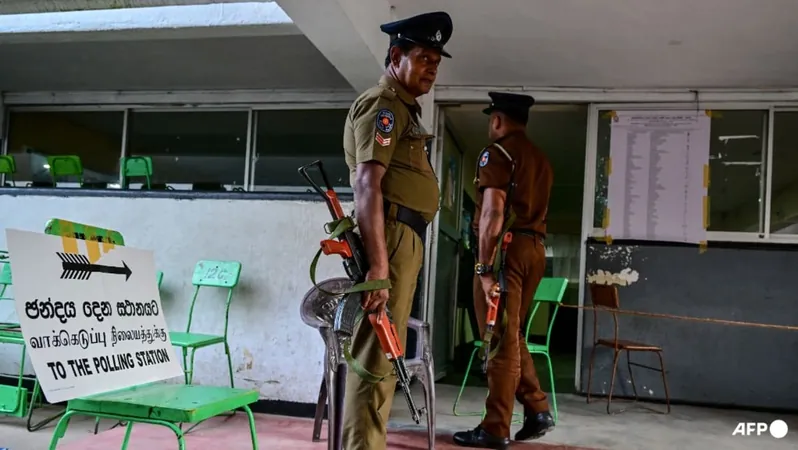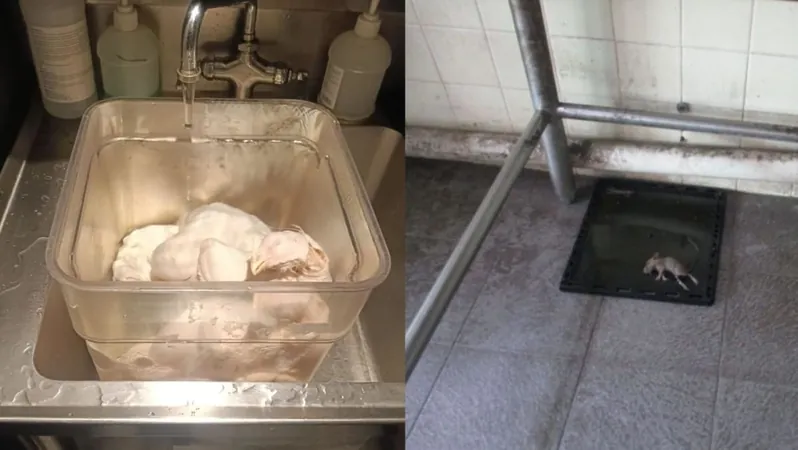
Sri Lanka Faces Crucial Presidential Election Amid Economic Turmoil
2024-09-21
Author: Li
Introduction
Sri Lanka has kicked off voting for its next president on Saturday, September 21, in what has become an effective referendum on the highly controversial austerity measures put in place following the nation's recent economic collapse.
This election marks the first since a severe financial crisis led to mass protests in 2022 that resulted in the ousting of former President Gotabaya Rajapaksa.
Current Leadership and Austerity Measures
The interim leadership of Ranil Wickremesinghe, who stepped into the role after Rajapaksa's swift exit from the country, is fighting hard to secure a fresh mandate.
Over his two years in office, Wickremesinghe has aimed to stabilize the economy, which has faced severe shortages of essential items such as food, fuel, and medicine.
However, his administration's austerity measures, in line with a $2.9 billion bailout from the International Monetary Fund (IMF), have sparked widespread dissatisfaction among the populace.
Campaign Dynamics
At a final rally held in Colombo, Wickremesinghe emphasized the need for ongoing reforms to prevent further economic disaster.
While Wickremesinghe is expected to struggle in the face of fierce competition from notable challengers such as Anura Kumara Dissanayaka and Sajith Premadasa, public sentiment appears to be shifting.
Voter Sentiment and Security Measures
Political analysts have pointed to an increasing number of voters eager to express their frustration with the government's handling of the crisis.
With over 17 million eligible voters, the election has prompted a significant security presence, including 63,000 police officers.
Economic Impact and Poverty Rates
Economic hardship has taken center stage throughout this eight-week election campaign.
Official statistics reveal that the poverty rate in Sri Lanka has surged to 25%, plunging more than 2.5 million citizens below the $3.65 daily income threshold.
Outlook and IMF's Position
As Sri Lankans cast their votes, the outcome will not only determine the nation’s leadership but could also shape its economic trajectory in the challenging times to come.



 Brasil (PT)
Brasil (PT)
 Canada (EN)
Canada (EN)
 Chile (ES)
Chile (ES)
 España (ES)
España (ES)
 France (FR)
France (FR)
 Hong Kong (EN)
Hong Kong (EN)
 Italia (IT)
Italia (IT)
 日本 (JA)
日本 (JA)
 Magyarország (HU)
Magyarország (HU)
 Norge (NO)
Norge (NO)
 Polska (PL)
Polska (PL)
 Schweiz (DE)
Schweiz (DE)
 Singapore (EN)
Singapore (EN)
 Sverige (SV)
Sverige (SV)
 Suomi (FI)
Suomi (FI)
 Türkiye (TR)
Türkiye (TR)